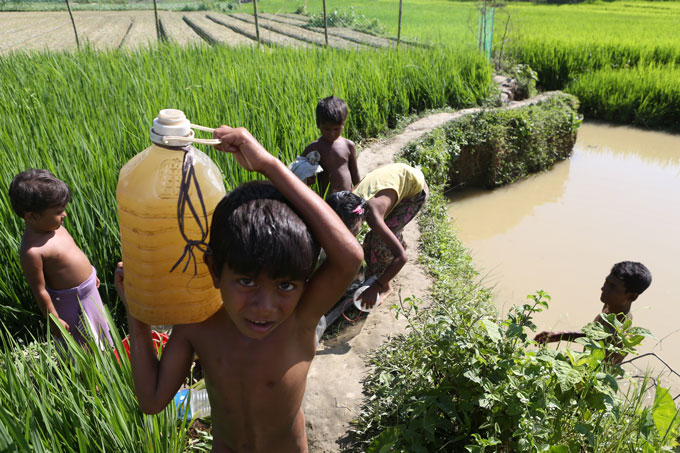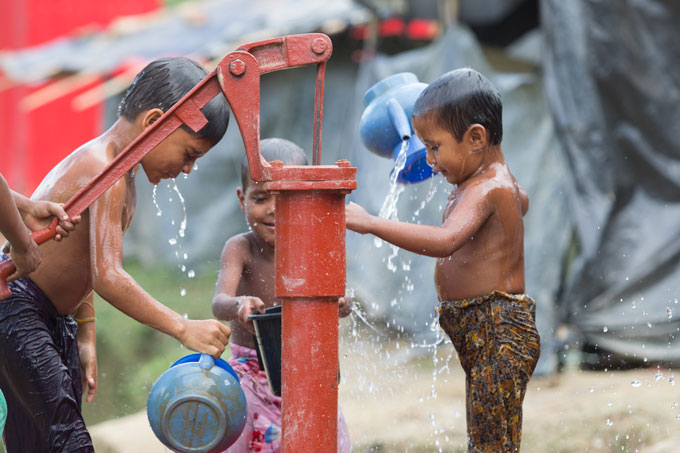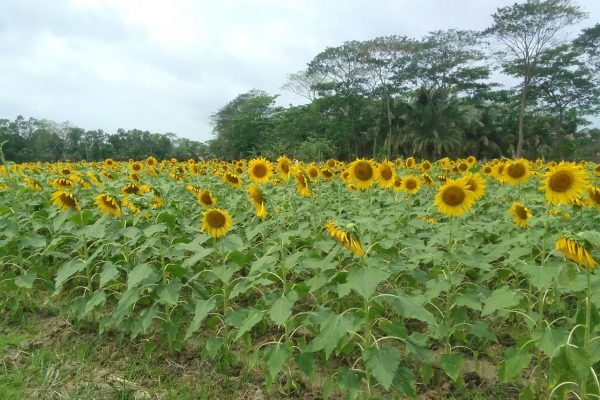Reading Time: 2 minutes
Cox’s Bazar is the world’s longest sea beach, and littered with holidaymakers and colourful beach umbrellas throughout the year. Less than an hour’s drive from the string of shiny hotels, however now lies a mega city of black tarp tents.
People are arriving by the thousands every day to Cox’s Bazar, but they are not wearing flowery hats and carrying beach towels.
Cox’s Bazar is the world’s longest sea beach, and littered with holidaymakers and colourful beach umbrellas throughout the year. Less than an hour’s drive from the string of shiny hotels, however now lies a mega city of black tarp tents.
There are many more people arriving than usual, but what they are seeking is far from a holiday, They are exhausted and injured. Over half a million people have fled into Bangladesh from Rakhine State of Myanmar since August 25.
They are coming into a safe place, but one which has no water, no food, no toilets, no houses and no sanitation. An outbreak of any disease will mean a health crisis of cataclysmic proportions. This combined with frequent monsoon rains spell a catastrophe in the making. Health experts are sounding alarms of possible outbreaks of waterborne diseases.
There are no roads to carry in vital water and sanitation supplies. Inadequate infrastructure is driving people to drink from pools of water by the roads, or in the middle of rice fields.

There has already been 10,000 cases of diarrhea, with the real figure assumed to be much higher.
Reinforcing our water and sanitation services is one of our top priorities, next to child protection and health. Our engineers are walking on foot to reach everywhere, including the most remote locations, and we are putting in 700 new toilets every day. We have already dug 1,100 tube wells, and we will eventually have installed 15,000 toilets.
“Life is not easy here. And tomorrow will be the same. Things are slowly starting to get better now though. Lots of people are trying to help. I can only hope that they continue.”
–Jahanara who has arrived with her two children
We are treating over 7,000 people every day at our 60 mobile health camps, which can be found across the settlements now. Our team of community health workers supported the government and WHO in the oral cholera vaccination campaign, and we are watching disease trends every day.
We have provided clean water for 224,000 people so far, and we will keep working until everyone has access.

Our 700-strong team is in place to provide critical services and infrastructure at scale, with proven experience and expertise in humanitarian response and development. We are continually adapting our approach as the situation evolves, to maximise our reach and impact.
Learn more about what you can do to support the humanitarian crisis in Bangladesh.
Sameeha Suraiya is a content strategist at BRAC Communications.





